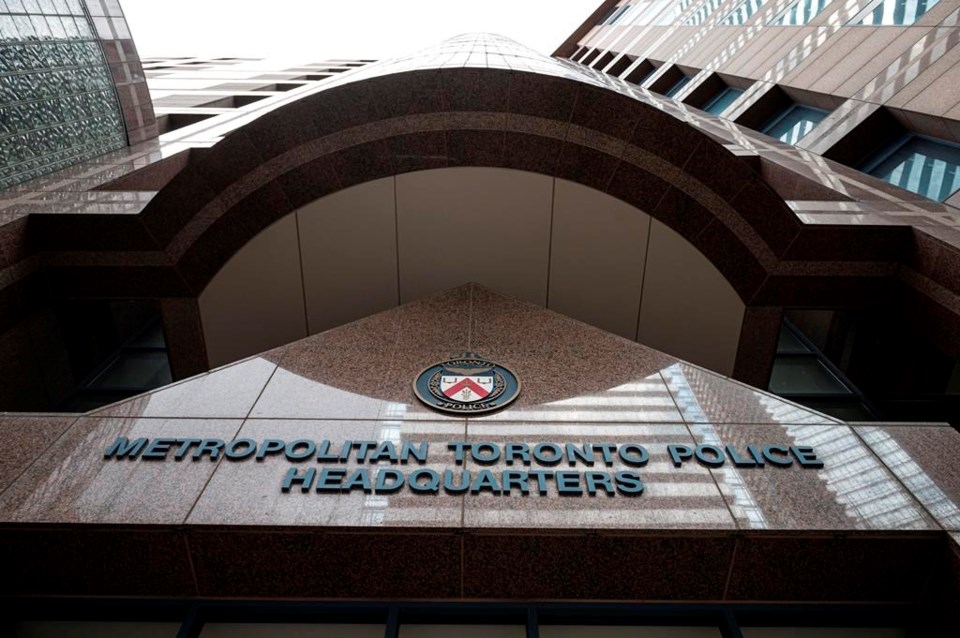TORONTO — Critics are voicing concerns that a series of recommendations aimed at reforming Toronto police falls significantly short of what's needed to bring about meaningful change.
The Ontario Human Rights Commission said it is worried the report presented at Tuesday's Toronto Police Services Board meeting "will amount to mere lip service."
In a written deputation, the commission — which released its second report on systemic racism in the Toronto force last week — said the board's report largely provides "non-binding directions to police staff to consider additional reforms."
It pointed to what it calls "important gaps" in the recommendations, particularly in relation to investigating and addressing officer misconduct, and policies on use of force and the laying of charges.
The report, which the board said is meant to begin addressing systemic anti-Black and anti-Indigenous racism, was released last week and adopted Tuesday.
It lays out 81 recommendations, with some calling for greater transparency on the police budget and policies, including on use of force.
The document does not, however, support a push from protesters and community groups to defund the force, saying the board "cannot impose any arbitrary cut in the police budget" or one that leads to a gap in police services.
It calls for the police chief to work with the board to review the force's budget and identify opportunities for service improvements, including "the possible redirection of non-core policing functions and their associated funding to alternative non-police community safety providers."
Board chair Jim Hart wrote in the report that redirecting calls from police to other responders "will require considerable work" with a number of stakeholders.
Until then, police and the Mobile Crisis Intervention Team, which pairs a mental health nurse and a specially trained police officer to respond to incidents involving people experiencing mental health crises, will remain "the only response option," he wrote.
The report also states that the investigation and discipline of officer conduct is "entirely out of the board's hands" under current provincial law, but notes there are steps it can take to improve transparency.
One recommendation calls for the board and chief of police to explore mechanisms to make disciplinary proceedings and their rulings more transparent and accessible to the public.
"This report is a beginning. It begins to address some of the important issues we face as a community," Hart wrote.
"The board commits to continued engagement on these matters and to advancing bold and innovative proposals that will achieve our collective goal of achieving a fair and equitable system of public safety."
Former Toronto mayor John Sewell, a member of the Toronto Police Accountability Coalition, told the meeting that the general sentiment expressed by the public is that it wants a rethinking of "the whole of the police function."
The report does not provide for that change and "shows the extent to which the board is missing the issue," he said in his deputation.
The coalition is calling for the creation of a public committee that will be given six months to produce a blueprint for police reform.
The document approved Tuesday incorporates an earlier report that was put on hold to allow for public consultations last month, a preliminary summary of those consultations, directions from Toronto city council, and input from advocates and the board's advisory panels.
It says the financial implications of the recommendations are "unknown at this time," and will be assessed on an ongoing basis.
Ahead of the board's vote, Toronto police posted an enhanced line-by-line breakdown of its 2020 budget on its website, along with a budget summary for the last five years.
This report by The Canadian Press was first published on Aug. 18, 2020.
The Canadian Press
